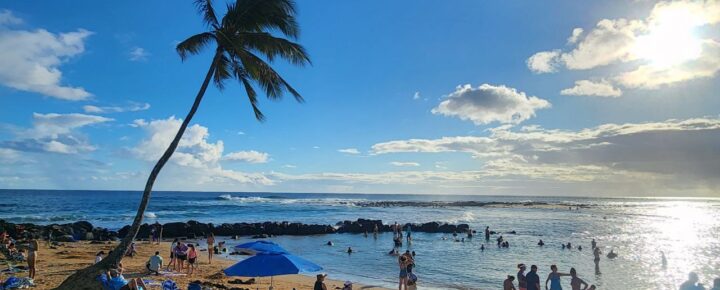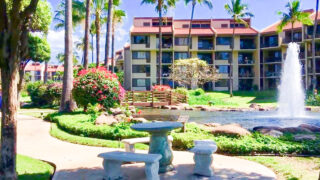The Hawaii Legislature has approved game-changing vacation rental legislation. As a result, each island county in Hawaii ha gained significant control over short-term vacation rentals. That follows the successful passage of Senate Bill 2919. The bill, which encountered fervent debate, was approved in the state Senate by a nearly unanimous vote and now awaits Governor Josh Green’s signature, which he has already promised is forthcoming.
Previously highlighted by us as a pivotal development amid simultaneous and escalating housing and tourism crises, this legislation is a decisive shift in moving vacation rentals from state to local control. It allows counties to choose to phase out vacation rentals in Hawaii entirely for the first time.
The move purports to address the critical housing shortage and the displacement of residents and claims that the decades-long surge in Hawaii vacation rentals has exacerbated these issues.
The bill’s passage represents a significant victory for community groups like Lahaina Strong, who have advocated for converting vacation rentals into local housing. Governor Green has expressed his support for the bill, emphasizing that it will enable people to access housing again, a sentiment he reiterated during a recent meeting with members of Lahaina Strong in Honolulu.
Despite very strong backing overall, it was not without any dissenters. Three senators voted no, as did five representatives in the House. Their concerns included, as others have indicated, potential unintended consequences. Opposition to the bill underscores the complexities of balancing local housing needs with those of a waning Hawaii tourism sector, which has historically relied successfully on short-term rentals as one of its key features.
Those in favor of the bill have argued successfully that empowering counties to regulate these rentals will allow for more appropriate and nuanced local approaches to housing and tourism.
Others, however, include our readers who expressed opposition vehemently in well over 200 comments on the topic state adverse effects on tourism and upcoming legal challenges regarding the measure’s constitutionality will abound.
As we await Governor Green’s imminent signing of the bill into law, Hawaii is again poised to begin a new era. This legislation has the potential to transform both Hawaii’s tourism and housing. It promises relief for residents but will signal a period of unknown, legal contention, and ongoing adjustments.
As we continue to monitor this landmark change, we invite you to share your perspective and experience. How will these changes affect you? Please join the conversation as we follow the implications of this historic change in Hawaii.
Beat of Hawaii lead photo at Poipu Beach, Kauai, where many Hawaii vacation rentals are located.







This is a joke, our association fee is $3460 a month, plus property taxes of $1,500 a month, electric bill of 300 plus $100 insurance and the associations has just announced a $23,000 special assessment per unit for new roofs. Who is going to rent a condo for 6 or 7k a month, it only works as vacation and has been a vacation rental since built 51 years ago.
We live in pukalani, our rental condo is 500 sq’, 1 bed, 1 bath, small closet, beautiful views. No mortgage, cost/mo. Is $1,825, excluding all utilities, and another $300. 32 mi drive to kahului, prohibitive for a worker, and if passed, no local tourist jobs, maui will become a welfare state. I just dropped a $12,000 job for a local because of this. This is not made for long term or a family. Hundreds of other units present the same problem.
Poorly thought out plan, for a good cause.
I boughr my condo in 1993 while living and working on Maui. Upon leaving we decided to rent long term to a local resident. For 15 years we subsidized our mortgage payment by this rent. After the tenant moved out we still had 10 years on the mortgage but wanted zo begin to make Maui our second home but had to renovate to get the income through short term rentals so we could come out a few months a year. If this legislation passes after 25 years we will have to abandon our dream to retire in Maui or sell our beloved second home. I am only one of many stories of how short term rentals evolved but elimination will be destroying lives of those who have heavily contributed to Maui’s tax base and economy.
With depressed tourism numbers taking hold and the uncertainty around STRs, the Maui economy will enter a historical recession in 5…4…3… while places like Kauai may continue to hold their own in the months and maybe years ahead since they seem unlikey to support an STR ban. When will Green and these legislatures pay the political price for this destruction (including the incompetence that helped cause the Maui wildfires – no land mngt etc)? The answer is never since the voters will continue to put these incompetent fools in office.
Green is just listening to his constituents. You have a squeaky wheel problem.
Given that Hawaii has two main economic assets, tourism and its also a natural stopping point for shipping between Asia and the us mainland. The jones act has plugged up the vitality of Hawaii as a transit port since 1920. Now the State seems to want to put tight controls on tourism. This will make Hawaii, the Lebanon of the Pacific, a place with nearly no export economy.
If Hawaii wants an economy that is vital, its best chances are to modify tax rules to make Hawaii a world center for R@D. This would require drastically reducing the top income taxes and not requiring amortization of R@D expense on state income tax, a fix California has made.
Yeah a little pixy dust and a magic wand and poof all the housekeepers etc become research and development people.
Rich people leave their 2nd homes and condo’s vacant. If well paid working people could afford to live in Hawaii full time, they would use many services that employee locals. Hawaii is one of the 3 states with the highest income taxes(CA, NY, HI). Dropping income tax rates would be one of the few things that could improve the economy. The work from home types are the best substitute for tourist who would come if the tax rate were lower.
Its likely Hawaii kills tourism, the politicians will raise taxes to and drive out more of the rich who pay the most tax. As welfare state ends the workers will leave even faster than they do now.
It’s almost as if the economy here was spiraling down the drain before short term rentals and airbnb saved the day. All the agonizing over the loss of a service that is less than a decade old really has people clutching at their pearls. Hilarious.
The consensus on this issue seems to be that the STR ban will be tied up in court for years. This does seem reasonable. The question I pose asks how many travelers will risk making advance reservations with so much uncertainty involved. I know I would not but others- who knows.
We should remember to differentiate the short term rentals in the different areas. Not all short term rentals will be gone. The ones that are in hot hotel zones will remain. I think there is a lot of confusion around this… There are a few that I know of for sure in Kihei that are in hotel zones. This information can be found on the Maui county website.
It matters little that there would be a few STRs left standing when 60% of STRs are targeted to be removed, along with all of the businesses dependent on those STRs. The fallout from this would be massive.
Additionally, the nightly prices of the remaining STRs would rise dramatically, since the supply would be gutted while the demand would remain the same. That’s just Economics 101.
Visitors are already struggling to afford recent increases on STRs and hotels alike on Maui. A 60% reduction in supply and resulting price increases would be a death knell for most visitors.
Well said, as most of these comments are. One of my would be renters said it best, hawaii is killing the goose that lays the golden egg. Too bad the makers of this didn’t actually listen to us before, and actually make housing more affordable. We have been priced out by taxes upon taxes, upon taxes, for their pet projects, not the peoples.
Before everyone get’s in a tizzy I found the Hawaii Government’s definition of a STR:
“Short-term rentals (STRs) are also known as vacation rentals, and are lodgings that provide guest accommodation for less than 30 consecutive days. In order to preserve housing for long-term residents, STRs are only permitted in resort-zoned areas and a couple of specific apartment-zoned areas.”
honolulu.gov/dpp/permitting/short-term-rentals.html#:~:text=Short%2Dterm%20rentals%20(STRs),of%20specific%20apartment%2Dzoned%20areas.
So those of you staying for 4 weeks, you’re good. Those of you staying in the “resort-zoned area and a couple of specific apartment-zoned areas” you’re good.
The length of stay has nothing to do with it. It’s going to be the property. Basically, if you have something that’s not permitted, they’re going to shut it down. If you were in an area that the government says you cannot have a short term, vacation rental, even if you put somebody in it for 30 days or longer, it’s still classified as a short term vacation rental. If I put somebody in for three days and then I have somebody come in and stay for five weeks and then I have someone come in and stay for six days. It’ll all be looked at the same.
In the case you are describing, the problem is the Landlord. If the landlord writes a contract for less than 30days, that’s a landlord problem.
No one says they have to Stay in the unit for the full 30days, but the landlord can’t have 2 contracts for a given unit at the same time. So if someone only wants to stay for 3 days, that’s their choice, but the landlord would have to write up the contract for at least 30days and would not be able to rent the place again until the contract it up.
I hope that landlord charges a lot to that 3 day customer, because they’ll be out a lot of money.
Only the rich can stay 30+ days so forget making Hawaii affordable to middle class families, who are what the employees of Hawaii are most like. STR are the only affordable options for a once in a lifetime family of 4 vacation experience.
So does this mean we cannot book vacations to hawaii?? Such as resorts, airbnb ,hotels home? We are wyndham by worldmark owners will that affect us??
Theoretically outside investors could buy entire zones. But banning rentals denies residents from participating in the #1 source of outside money. Either way 100% of Hawaii’s hospitality income goes to outside owners.
Should be limited, one STR, on the property of an owner-occupant, with a minimum of 5 years at that property. Either we also get to profit from our Hawaii RE investments, or raise hotel taxes to 35%+ and lower the GE and property tax.
I remember going to Hawaii in the 1990s, 747s everywhere. Planes had to stop for gas so eveyone spent a couple of days to a week in Hawaii. The planes fly right over the islands. People now have to make the state the destination they want to go to. But now you could rent a condo and have your own place, like your home. You can cook your own meals, people are vegitarians, people have food allergies and intolerances. Most people dont want to be stuck in a room with a bed and eat greasy food for a week. Thats what the hotels and resort want you to do. Stay in Waikiki for a week. Now you can rent a car and explore the islands. I have been to all of them. Price of real estate will drop. I guess I am done with Hawaii.
Luckily, saner heads prevailed. Summary from an on-island organization working to help residents.
“The Windward Planning Commission gave Heather Kimball’s signature Short Term Rental bill a thumbs down today by sending an unfavorable recommendation to the Hawaii County Council.
Chairman Lin cited several serious reservations about the bill, but his chief reservation was the lack of a comprehensive, independent economic impact study.
Multiple members viewed the bill as ‘government overreach.’ Other concerns: regulating what homeowners can do in their own home.
The Commission’s reservations about the bill mirror the concerns of the hundreds of testifiers who showed up to oppose it.
I was talking to several friends who live on Maui. They are not happy with what’s going on on the island. They feel that this proposal was not well thought out and that it’s going to make their tourist numbers more ugly than what they have.
Ok, so I will cancel my July – Five day Maui rental at $890 a night to be sure I get my deposit back now while the renter still has cash. Between car rental, golf, tours, dining, I was planning to spend about $7000 on the trip, now Zero. Good luck with that Maui. Cabo San Lucas here I come !
Looks like it’s time for another sequel to ‘Dumb & Dumber’ starring none other than the Gov and his cronies… and we wonder why the bridges & roads are falling apart, teachers can’t afford to live here, airports have close runways, etc, etc…
It’s unbelievable how these incompentant politicians get elected and set policies to destroy their own economy. There simply isn’t enough rich travellers to sustain Hawaii’s economy. Hawaiian citizens have no one to blame but themselves when their state becomes bankrupt.
Please know that most of us are disappointed and ashamed of our government. Even when so many of us vote against their ignorance we lose on these bills. Now we’re doing our best to get the word out. Thanks to media corruption was uncovered. We need to keep fighting. Politicians have caused the fighting between locals and directed it to tourism. Distracting us from whatever they’re doing next- more hotels. We need help & solutions not judgement.
Ha ha ha ha, when will they learn , government control never works. Try and fix one problem create 10 more!!
The new legislation will not affect Kauai at all. In an extensive interview with Hawaii Public Radio on March 19 he said he is satisfied with the island’s handling of STVR’s and that there are agreements in place with ABNB, VRBO and others to ensure that Kauai properties comply with its ordinances. This has been ongoing since the pandemic. No changes coming.
No changes coming on Kauai until a new mayor and a new group of council members is in charge.
I guess I have been to Hawaii for the last time after visiting 10+ times over the last 20 years. I cannot afford the the high cost of hotel rooms and fully anticipate that eliminating vacation rentals will cause those remaining to rent at a premium.
So if your goal was preventing middle class mainlanders from your island paradise, I think you have succeeded.